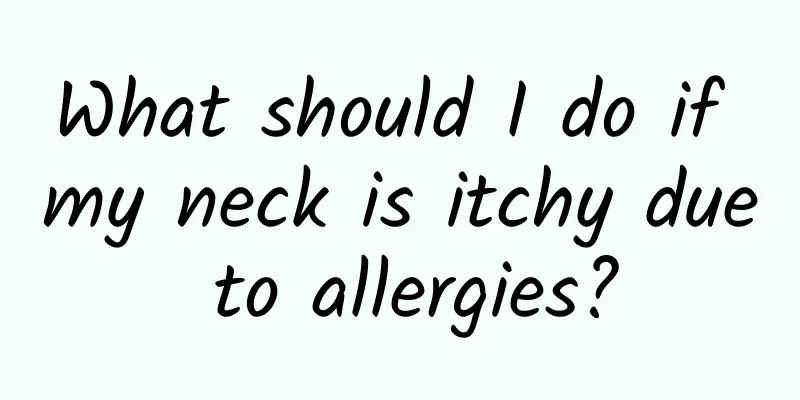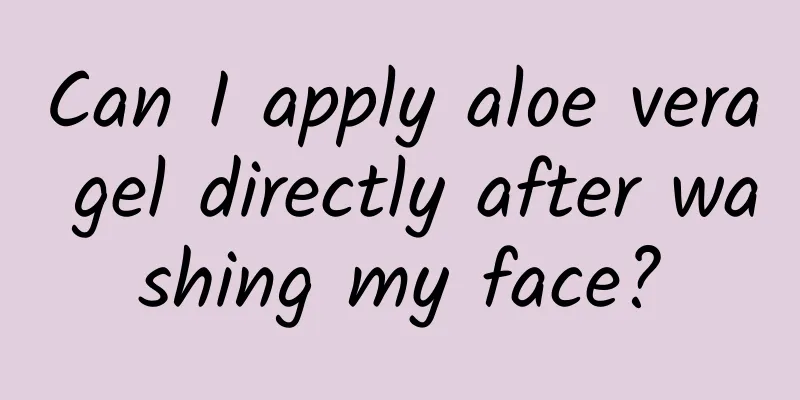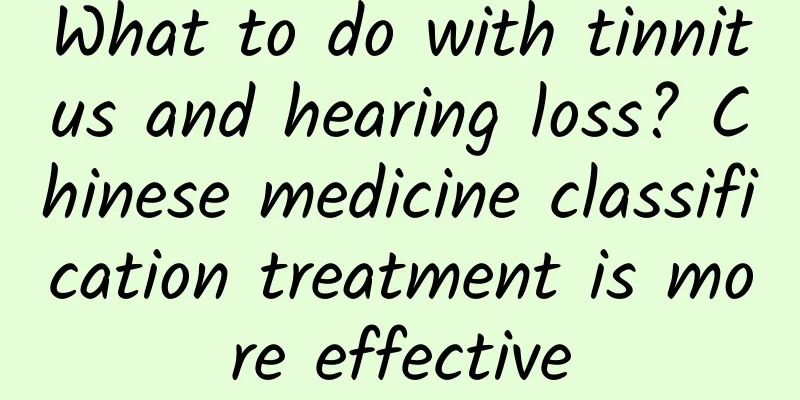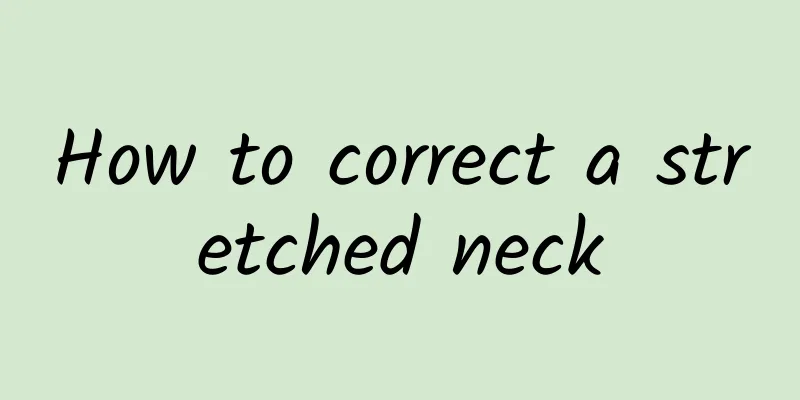Why do my eyes hurt when I have a headache?
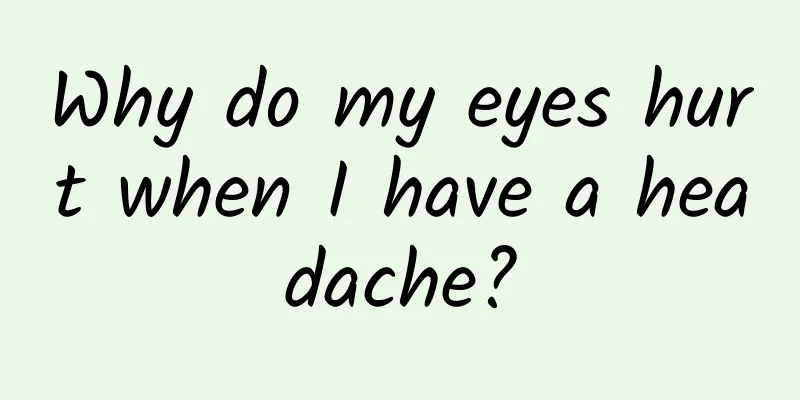
|
Headache is not a disease but it can be very painful. Many people have experienced headache. When it hurts, they feel dizzy and uncomfortable all over. Sometimes even their eyes hurt. In severe cases, swelling may occur. Generally, there are many reasons for headaches, such as emotional tension, excessive stress, stimulation, medication, physical allergies, or eating inappropriate food, etc., which can indirectly or directly cause headaches. What should we do in this situation? Headaches can be divided into the following categories based on their cause: 1. Tension headache: It is a wide range of persistent headaches. It usually manifests as a chaotic, continuous rather than a violent throbbing or stabbing headache. This type of headache is just like its name suggests, it usually occurs when you are nervous and disappears when you relax. 2. Sinus headache: The pain is mainly in the forehead, nose or eyes, sometimes even on the top of the head, accompanied by a feeling of pressure. This persistent headache is usually caused by inflammation and infection of the sinus mucosa. Environmental allergies and food may also be the culprit. 3. Caffeine withdrawal headache: If you love drinking coffee, once you drink less one day, this type of headache will occur. At this time, just drink a cup of coffee and it will be cured without medicine. 4. Glaucoma: Sometimes eye pain, headache and vomiting may occur. 5. Migraine: It starts with a throbbing headache, usually originating above or behind an eye; or it may start from the back of the head and then extend to one entire side of the head. It is often accompanied by nausea, vomiting, blurred vision, tingling and numbness in the limbs; migraines can last from a few hours to a few days. Factors that may cause headaches include: emotional tension, stress, anxiety, constipation, eye, nose, and throat diseases, head trauma, air pollution, sinusitis, medication, smoking, fever, use of perfume, allergies, etc. Food allergies that cause headaches include: wheat, chocolate, MSG, sulfites, sugar, hot dogs, citric acid, fermented foods (cheese, yogurt), wine, vinegar, and braised foods. Other possibilities include: intestinal problems, fungal allergies, brain problems, anemia, hypoglycemia, excessive use of vitamin A (stopping its use will solve the problem), vitamin B deficiency, high blood pressure, bruxism, poor liver function and drinking too much coffee. No matter what type of headache you have, it's important to identify the causes and control them. Want to keep headaches away from you? Please read the secret recipe below first. ● Ways to relieve tension headaches Tension headaches are the most common type of headache. Although they usually disappear quickly and the pain is mild, they can be very concentrated and sometimes worse than migraines. You can distinguish them from migraines by the following characteristics: Pressure and tightness. From mild to gradually worse. Both sides of the head hurt. Not aggravated by routine physical activity. There will be no nausea, vomiting, or sensitivity to light or sound. Most doctors believe that tension headaches are caused by muscles around the forehead, above the ears, or at the back of the head tightening up and cutting off blood flow to the arteries. The solution is to relax the muscles in these areas, which is easy to do with a little practice. Here are some things you can do when you have a tension headache: ● Make sure your diagnosis is correct first. Rule out other possible causes of your headaches, such as caffeine withdrawal, toothache, sinus problems, lack of sleep, not eating, or other factors. ● Then relax your mind. Relaxation is quick and effective. The more you do it, the more effective it will be. You can do it when you feel your emotions becoming tense and your muscles tense. You can try taking deep breaths or closing your eyes and daydreaming. Soon you will find that relaxation can become a natural reaction and your headache will gradually disappear. Additionally, biofeedback can help. ●Learn to relax your muscles. To relieve tension, you can also try muscle relaxation, which is very effective in relieving tension. The muscles that need to be relaxed include: the muscles on the forehead, the muscles on the back of the neck, and the muscles on both sides of the temples. You can use massage to relax these muscles "externally", or you can consciously relax tense muscles "internally". Start by slowing down your breathing and imagine that each breath you take in brings relaxation into your muscles, and each breath you exhale releases tension. Move your eyebrows up and down to release any tension, and relax any tension you may have in your mind. Next, focus on the back of your head, where the neck muscles are connected. Slowly move your head back and forth, and then in a circle. Let go of any tension and let slow, steady breathing take the stress out of your body. Then turn your attention to the muscles above your ears. These muscles are also involved in chewing, so they are quite powerful, and if they are tense, they can cause you a lot of stress. Now try to feel if there is any tension in the muscles there, and if so, relax them. Let each inhale bring in relaxation, and each exhale send tension out. |
<<: Why does it hurt when you press on the lower part of a woman's belly button?
Recommend
What to eat when you have a sore throat? Drink more of the five heat-clearing, yin-nourishing and fire-reducing soups in spring
Traditional Chinese medicine believes that spring...
Benefits of fresh orange peel
The whole orange is a treasure. The orange flesh ...
How much do you know about the functions of sunscreen products?
Sun protection is the most important step in whit...
Bawei Dihuang Pills
I believe that everyone has heard of Bawei Dihuan...
Does Cordyceps nourish the kidneys?
I believe everyone is familiar with Cordyceps. It...
What causes white spots on face?
If small white particles appear on your face, the...
What are antihistamines?
Medicines are very important supplies in modern l...
Migraine symptoms and treatment
Migraine is not a new word for everyone. When the...
What to do if there is a thorn in the throat
The throat is a fragile area and eating hard food...
TCM Syndrome Differentiation of Spleen Deficiency
The spleen is one of the five internal organs in ...
Taboos of eating Chinese medicine pills
If people feel some discomfort in their body, the...
How to eat taro to lose weight, taro weight loss recipes
Taro is a common food on the table. It has a swee...
Puerperal infection, symptoms and signs to know
Puerperal infection is an infection caused by bac...
Spontaneous pneumothorax bullae, causes and treatment of pneumothorax.
Pneumothorax is a common disease in life. It usua...
What ointment promotes wound healing?
We all know that when a part of a person's sk...
